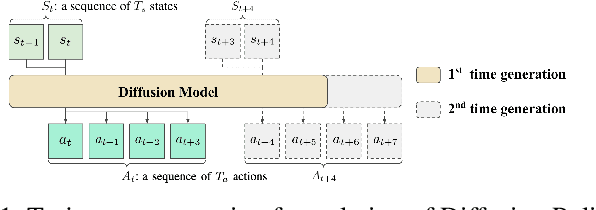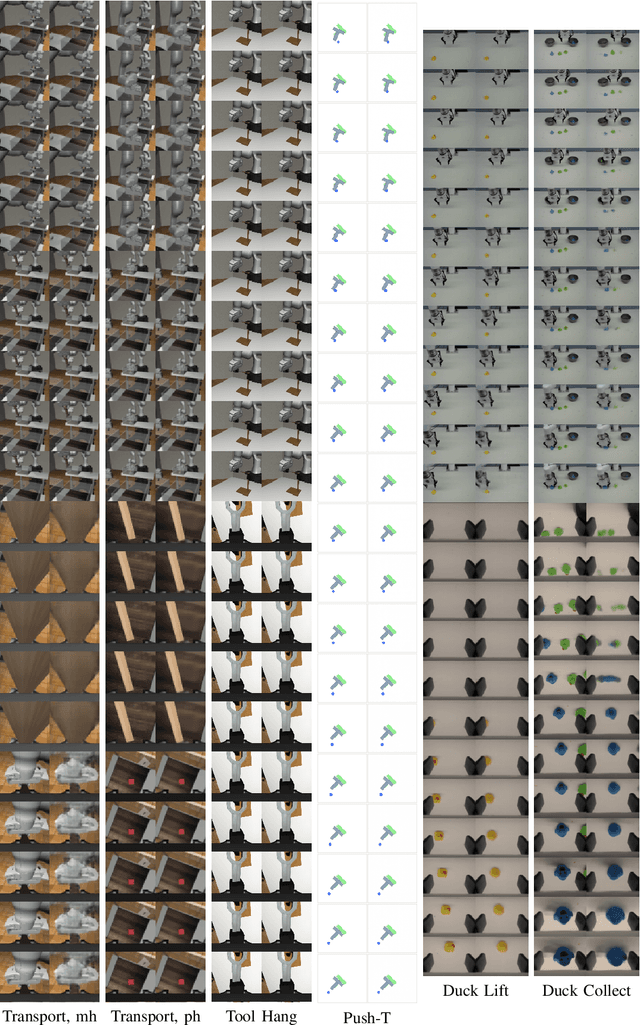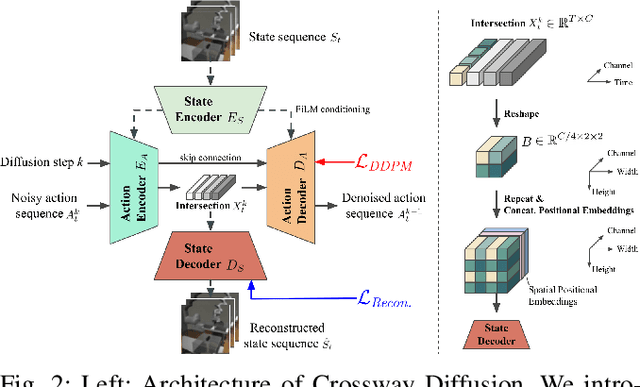Crossway Diffusion: Improving Diffusion-based Visuomotor Policy via Self-supervised Learning
Paper and Code
Jul 04, 2023



Sequence modeling approaches have shown promising results in robot imitation learning. Recently, diffusion models have been adopted for behavioral cloning, benefiting from their exceptional capabilities in modeling complex data distribution. In this work, we propose Crossway Diffusion, a method to enhance diffusion-based visuomotor policy learning by using an extra self-supervised learning (SSL) objective. The standard diffusion-based policy generates action sequences from random noise conditioned on visual observations and other low-dimensional states. We further extend this by introducing a new decoder that reconstructs raw image pixels (and other state information) from the intermediate representations of the reverse diffusion process, and train the model jointly using the SSL loss. Our experiments demonstrate the effectiveness of Crossway Diffusion in various simulated and real-world robot tasks, confirming its advantages over the standard diffusion-based policy. We demonstrate that such self-supervised reconstruction enables better representation for policy learning, especially when the demonstrations have different proficiencies.
 Add to Chrome
Add to Chrome Add to Firefox
Add to Firefox Add to Edge
Add to Edge